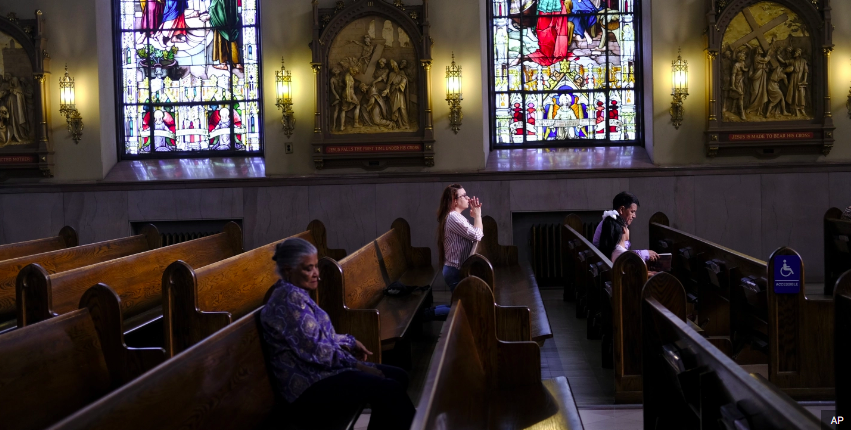On November 1, 2019, RFI President Thomas Farr and Executive Vice President Eric Patterson spoke at a conference titled, “Christianity and National Security.” Held at the Army-Navy Club in Washington, D.C., the conference was sponsored by Providence: A Journal of Christianity and American Foreign Policy. Nearly one hundred college students from private and public universities across the country attended the event.
Patterson, who is a contributing editor to Providence and serves on the board of its parent organization, the Institute on Religion and Democracy, kicked off the conference with a talk about the Christian foundations of just war thinking. His talk was largely based on his 2019 book, Just American Wars: Ethical Dilemmas in U.S. Military History. Patterson outlined the key Biblical and theological principles found in Christian approaches to politics and statesmanship, from Proverbs to Romans 13. A key point in the book is that Americans have long had the unique opportunity to make religion-based arguments for and against specific U.S. wars, such as sermonizing for and against the American War for Independence. Tories felt that the “revolution” was rebellion against God-ordained authority, whereas supporters of independence argued that it was the role of the colonial legislatures as intermediate authorities—following John Calvin’s teaching—to protect citizens from the plundering of King George’s Hessian mercenaries. In either case, both sides took for granted their religious liberty to argue, assemble, and publish their faith-inspired positions for or against the war.
In 1776, no one argued that making religion-based arguments was beyond the pale of propriety, much less could be construed as unconstitutional.
Farr’s remarks began with a reminder that religion is central to our understanding of human flourishing:
Religious freedom is important for everyone, everywhere. Why? Because religion is important for everyone, everywhere. Human beings are innately religious. Our nature impels us to seek answers to profound questions about ultimate things. If we are not free to pursue those answers, and to live according to the truths we discover, we cannot live a fully human life.
Religious freedom is therefore the right of all persons to believe, speak, and act – individually and in community with others, in private and in public – in accord with their understanding of ultimate truth.
He went on to define and articulate a robust view of religious freedom:
Religious freedom is a right that is guaranteed in the First Amendment of the United States Constitution. It is the right of all human beings and all religious communities to the free exercise of religion. Given its profound importance to the founding of America, and to human flourishing, it is a capacious right – i.e. universal, broad, and deep – though it is not absolute.
Religious freedom includes the right to believe, or not to believe, in religious truths. There is no hint of coercion in the American understanding of religious freedom, i.e. that one must believe. Coercion is alien to the American treatment of religion. If one does not believe, one’s rights are fully protected under the Constitution’s guarantee of free speech, expression, and assembly.
Farr pointed to domestic and international challenges to religious freedom, from the militant secularism we are seeing in the U.S., to the persecution of Christians and Muslims in China.
More details about Providence and this conference on national security affairs can be found here.
THE RFI BLOG

Addressing the Precarious Religious Freedom in Iraq

U.S. Must Redesignate Nigeria as a CPC Immediately

RFI Urges MD Lawmakers to Protect Children, Parents, and Health Care Providers

The Intersection of Religious Freedom and Immigration Enforcement

Following Quran Burnings, Will Sweden Stumble Into Anti-Blasphemy Laws?
CORNERSTONE FORUM

Reaffirming Religious Freedom: Bridging U.S. Advocacy and Iraq’s Constitutional Framework

Political Polarization, Same-Sex Marriage and Religious Liberty

Bridging the Gap Between International Efforts and Local Realities: Advancing Religious Freedom in the MENA Region

Challenges to Religious Freedom in Iraq and the Critical Need for Action

